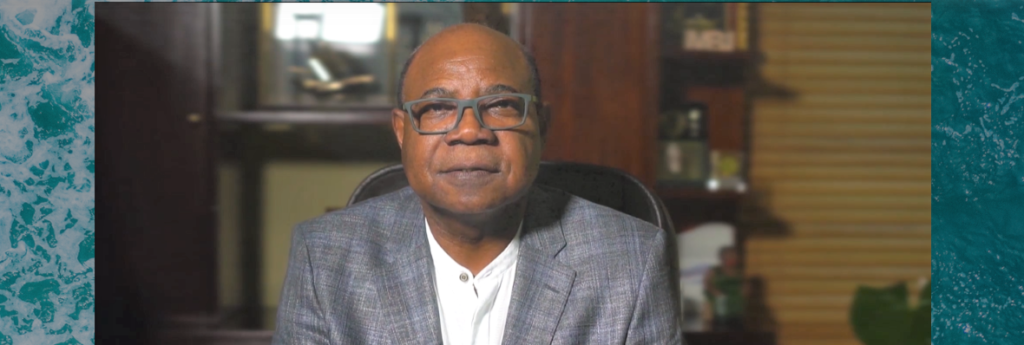It’s not the way Jamaica’s tourism director Donovan White wanted to be meeting the friends and partners of Jamaica at the country’s annual tourism show, but desperate times call for creative measures. So, for the first time in 30 years, JAPEX has gone virtual thanks to COVID-19.
That the show – taking place yesterday and today – has a record number of online delegates (travel agents, tour operators, suppliers and media) is a small “silver lining” for an event Jamaica’s tourism minister Edmund Bartlett calls “the single most important travel trade show for Jamaica’s tourism industry,” adding, “It is important for the nation.”
JAPEX Live 2020, co-organized by the Jamaica Hotel and Tourism Association (JHTA) and the Jamaica Tourist Board (JTB), shows that the island’s tourism industry is willing and able to “rise to the challenge rather than be daunted by the setback (of the pandemic),” and that it’s resilience “knows no bounds,” adds Bartlett.
With over 2,500 delegates (including 2,000 travel agents) linked in from around the world, the event features elements of a traditional tradeshow including a launch with keynote presentation by minister Bartlett.
Attendees can also virtually explore the tradeshow floor using an interactive Google map that will take them to the resort areas of Negril, South Coast, Montego Bay, Ocho Rios, Kingston and Port Antonio and videos will auto-play to engage attendees. Exhibitor booths are interactive, offering sharable content and chat functionality.
Other activities include breakout and training sessions and one-on-one pre-scheduled video meetings with travel partners.
That the response to the program has been so well received shows that “Brand Jamaica is still very popular around the word,” says show organizing committee chair Nicola Madden-Greig.
The event is two days of “connecting, learning and discovery, but most critically doing business,” says Bartlett.
Indeed, Jamaica, which welcomed 4.3 million visitors in 2019, is down 60 percent in 2020 year over year (through the end of September), affecting an industry that creates 170,000 direct jobs and produces almost 10 percent of the country’s GDP.
Fortunately, the minister says the industry is seeing some signs of “buoyancy” since re-opening in June and is hoping to see a 40 percent jump during the winter months. However, a full recovery to pre-pandemic numbers is not forecast until at least the end of 2022.
But in the near term, some hotels recently saw occupancy of close to 90 percent over holidays weekends, prompting the industry to be “cautiously optimistic.”
The surge, which has seen 211,000 visitors and the return of 30 percent of those employed in tourism since the June 15 border re-opening, is based on the return of international carriers (including Air Canada and WestJet) and Jamaica’s measured phased-in return to welcoming guests back based on stringent health and safety protocols, and the more recent easing of restrictions as circumstances have dictated.
For example, testing protocols for entering the country have been simplified and tourists can now move around the tourism “resilient corridor” at will, including going to attractions or staying at multiple hotels if they choose.
And Jamaica isn’t stopping there, with Bartlett pointing to the introduction – likely in December – of the new Jamaica Cares mandatory insurance coverage for all visitors that will cover the costs of any COVID-19-related expenditures, such as testing, and medical care (including evacuation) if required.
“Post-COVID visitors will not be the same as pre-COVID visitors. They will want to know that their safety is being taken care of,” says Bartlett.
To that end, he says, it is incumbent that Jamaica reinvents itself and is prepared to look at tourism from a new perspective.
“Tourism is a key driver of the Jamaican economy and we must view the unprecedented pandemic as a transformational opportunity.
“The new normal,” he says, “will be however we choose to define it.”
To find out more today’s remaining sessions, log onto to www.japex.org
RELATED STORY:
A STEP CLOSER:Jamaica leads way with traveller protection program

